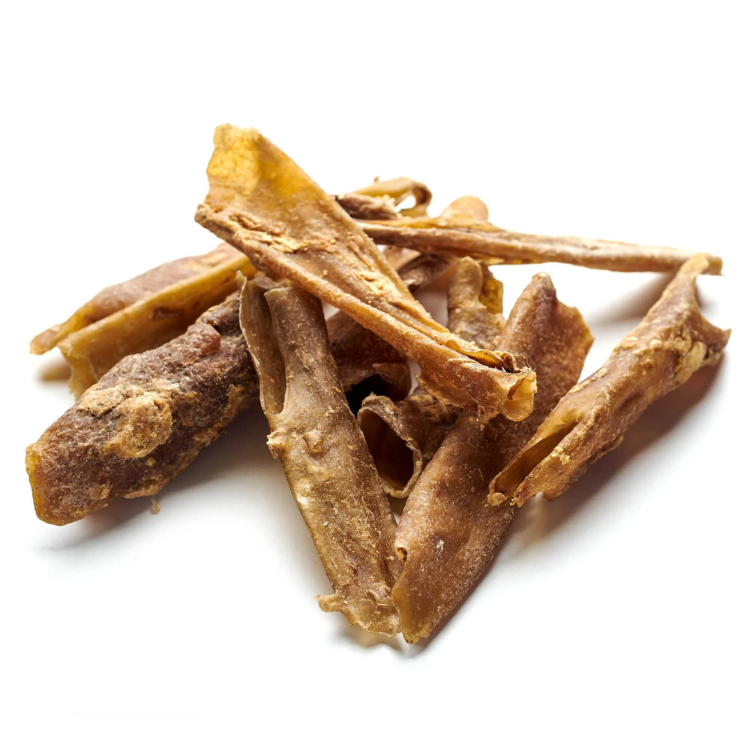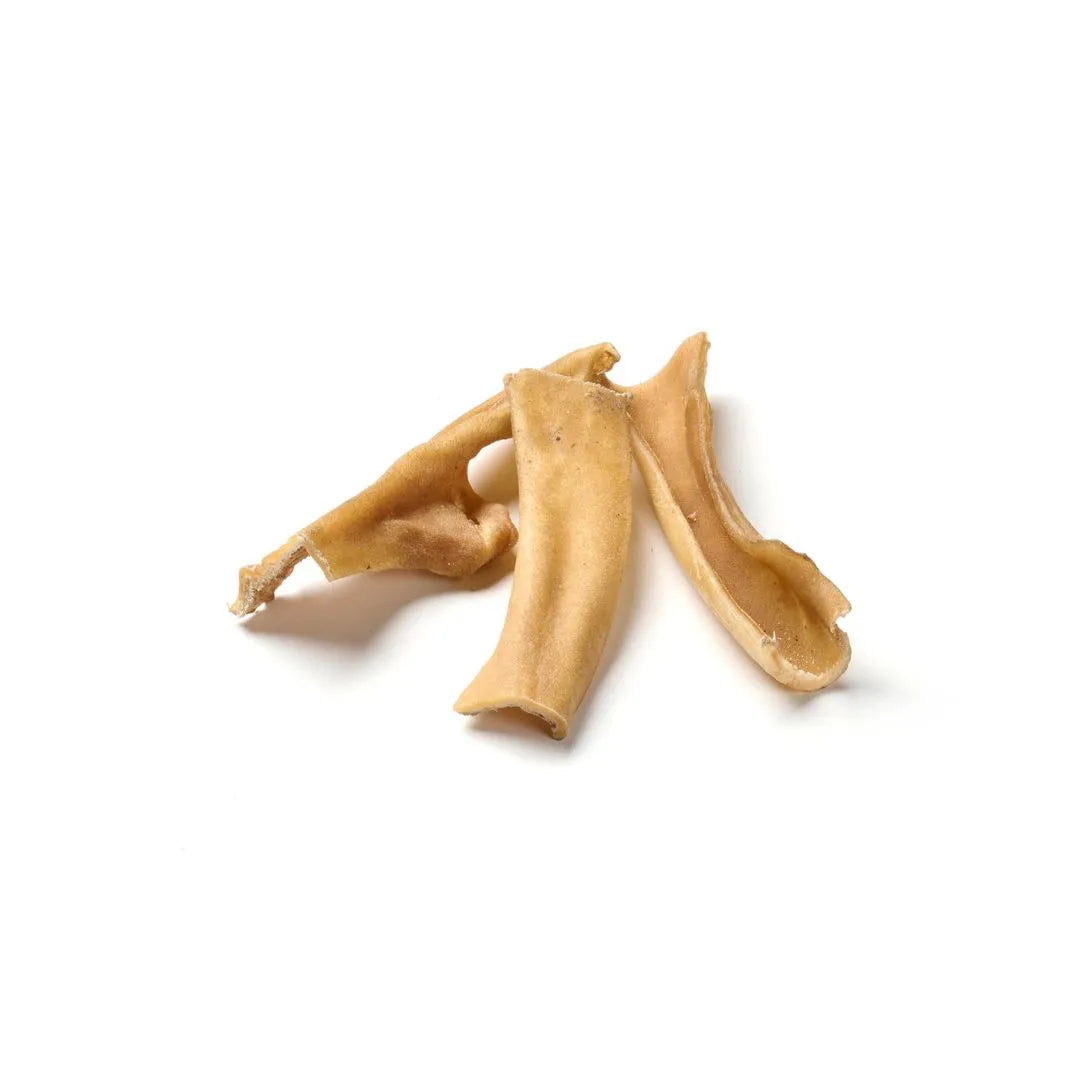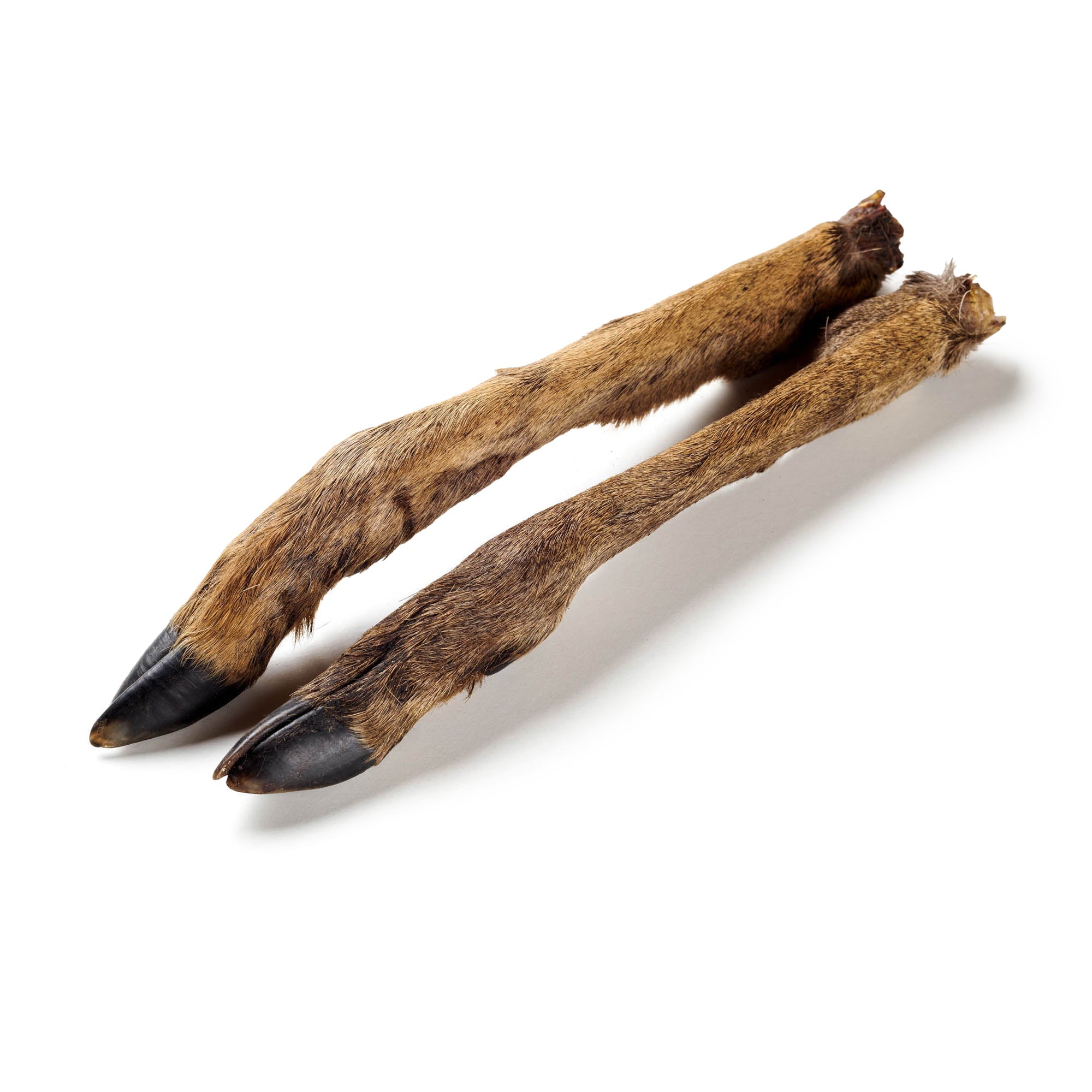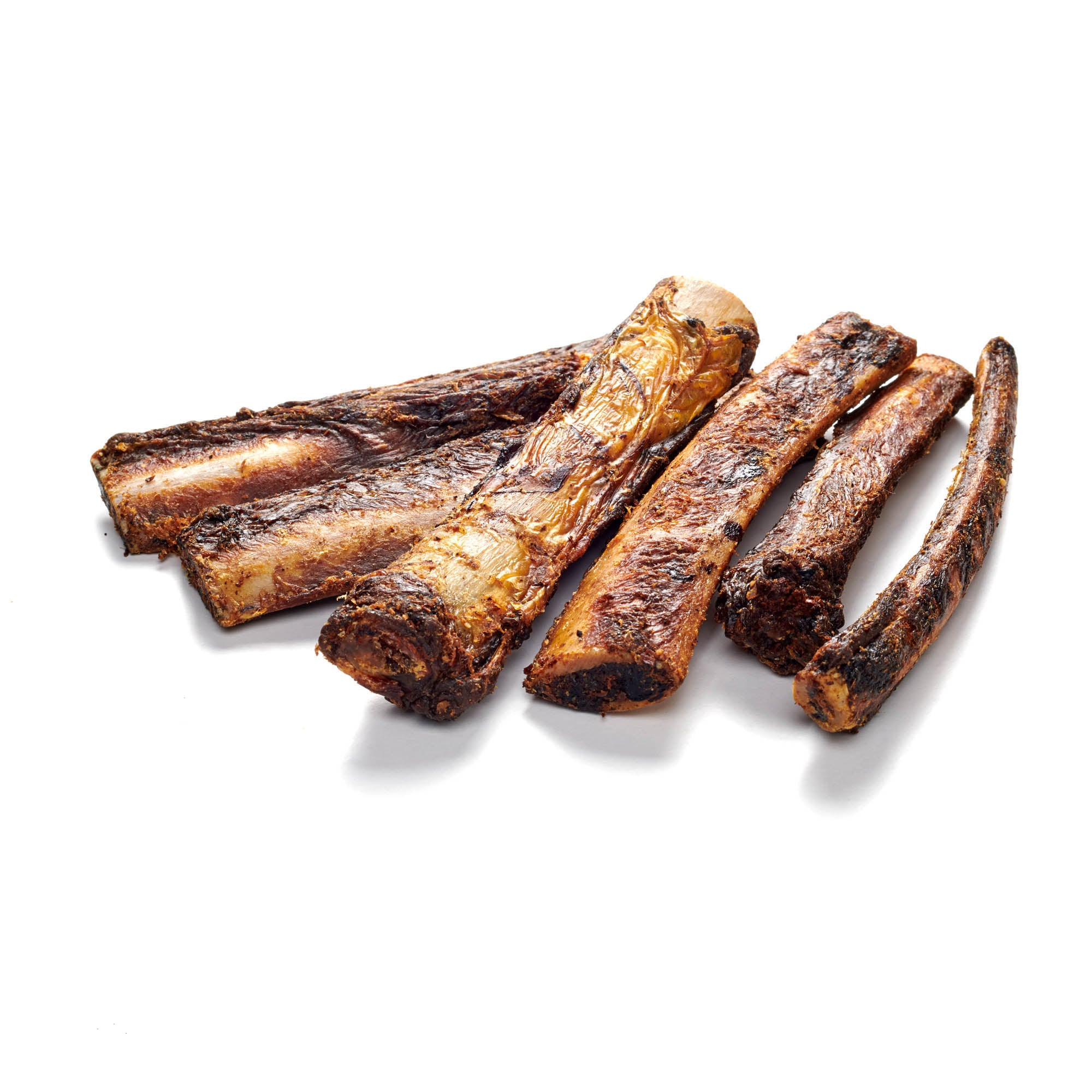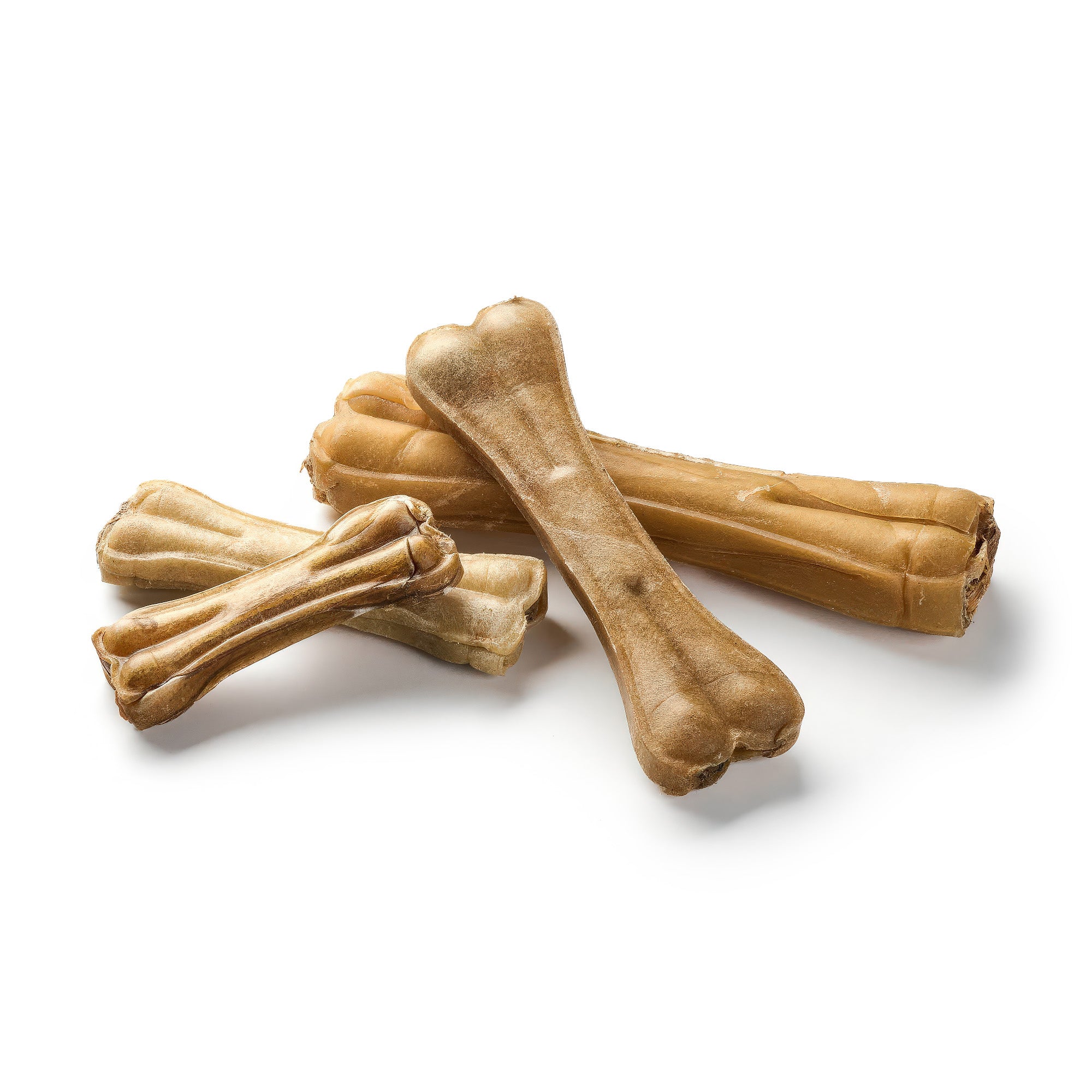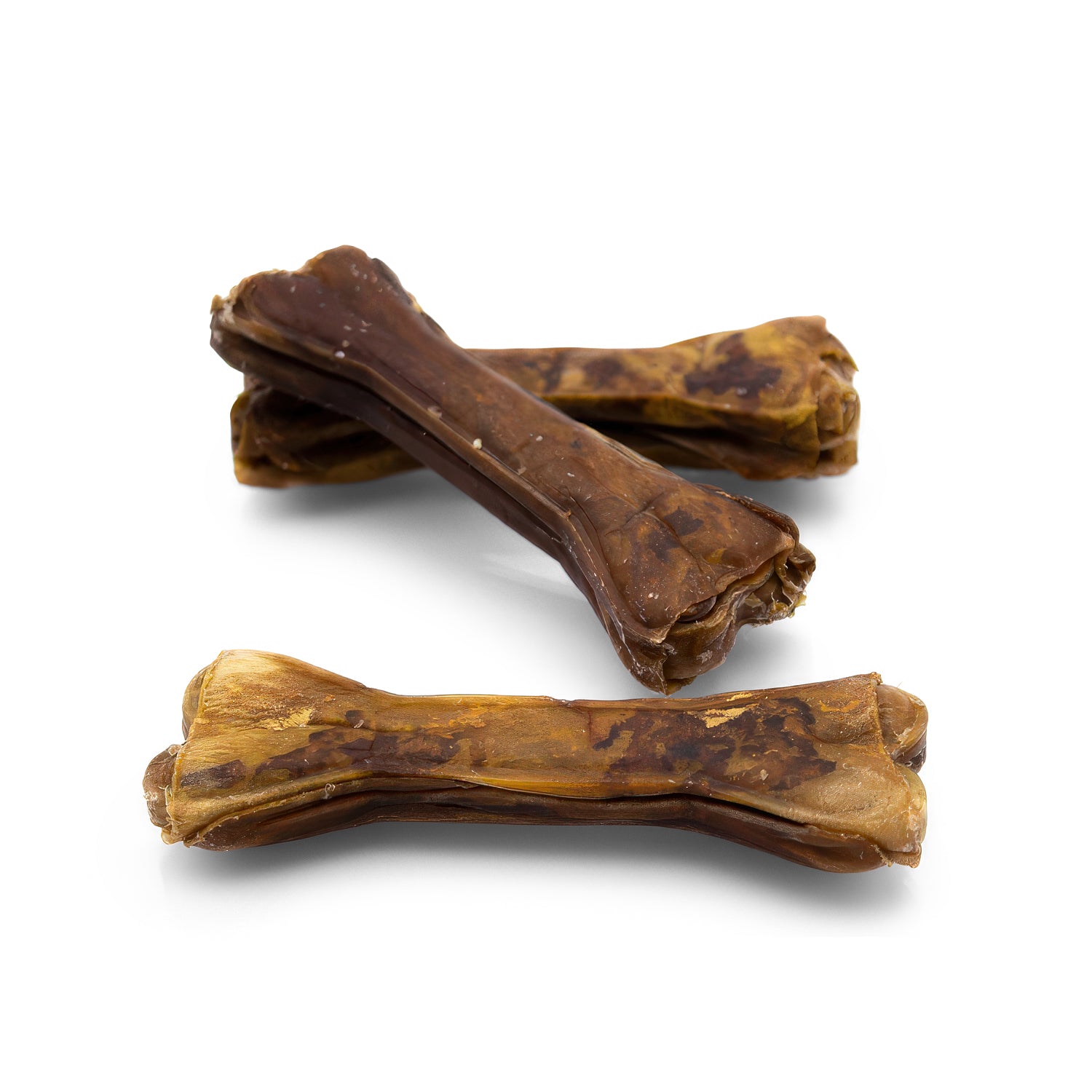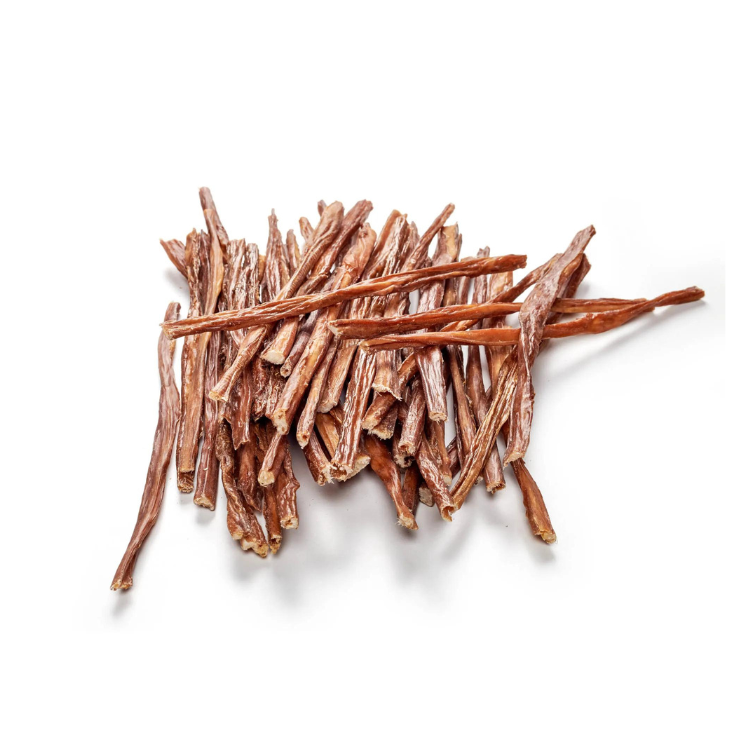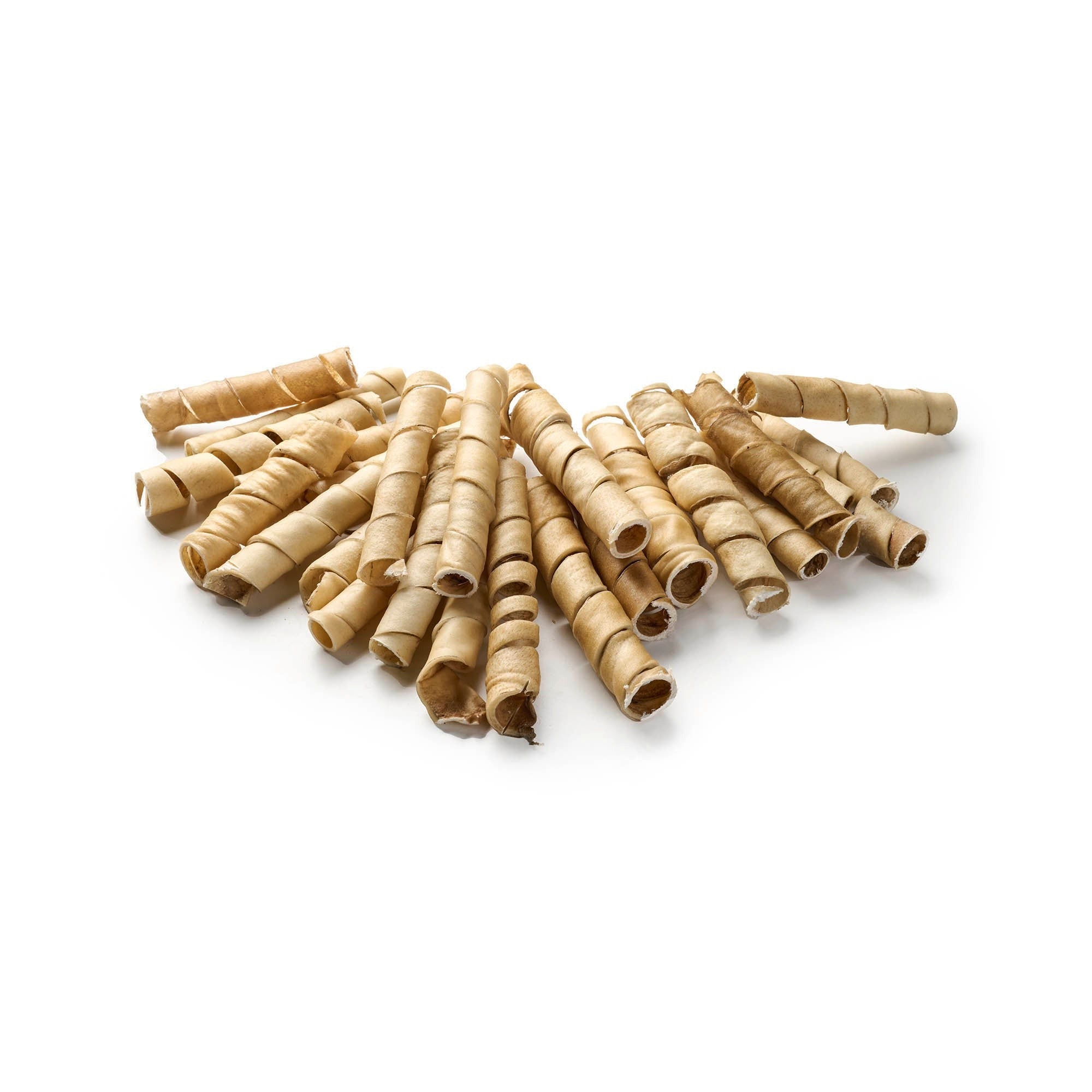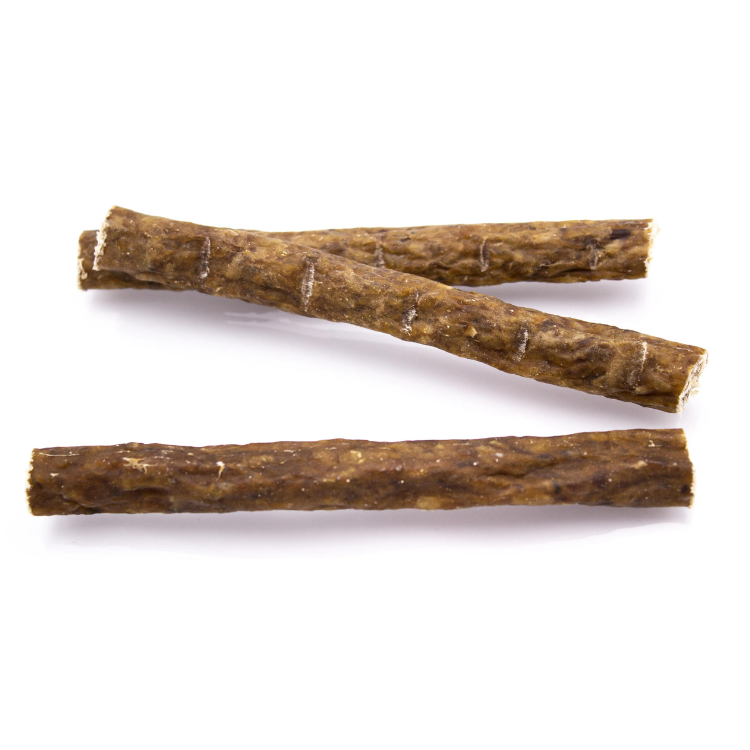
The right care for senior dogs
Share
Imagine that your faithful dog, who has accompanied you for years with his boundless energy and unwavering loyalty, is starting to turn a little grey around the muzzle. His movements become more deliberate and he now enjoys leisurely walks rather than wild chases through the park. This phase of life brings with it a new kind of relationship and coexistence - one characterized by even deeper affection and care.
Content: Proper care for senior dogs
- Signs of aging
- Health care
- Care and well-being
- Dealing with age-related diseases
- Emotional support and attachment
- Precautionary measures in everyday life
- Conclusion
Pamper your dog with our delicious chews!
During your dog's golden years, you can help him continue to live a full and happy life by providing appropriate care and special attention. It's the time when every caress, gentle walk and loving gesture counts double. So how can you make sure your senior dog gets all the support and care he deserves? In this article, you'll learn how to recognize the signs of aging, take the right health measures and promote your senior dog's well-being. Together, you can enjoy this special phase of life to the fullest.
Signs of aging
As your faithful companion gets older, he begins to change the color of his youthful fur to the noble gray of an experienced swashbuckler. You will notice that he is no longer as agile as he once was in his youth - his walks now resemble more leisurely strolls. The bubbling energy with which he used to dash through the garden is now carefully saved for the really important things in life.
His behavior also indicates that he appreciates the quieter pleasures in life. More sleep is on the agenda, and the wild chase after the toy gives way to a noble composure with which he observes the goings-on from his dog bed . Not to mention this increased need for closeness - your dog may now be looking for a warm lap or a gentle stroke more often.
Of course, some dog illnesses can come with the golden age. Arthritis may make it a little harder for him to get up, and he may need a little help getting onto his beloved sofa. Dental problems could make him more picky about chewing, and he may not see or hear quite as well as he once did. But with lots of love and a few adjustments to your daily routine, you can overcome these challenges together and enjoy your time together.
Health care
As your dog matures, comprehensive health care becomes increasingly important to ensure he lives a long and happy life. Here are some essential areas that deserve special attention:
Regular veterinary visits
Regular visits to the vet are essential for senior dogs. Your dog should be checked at least twice a year so that you can react to any changes in his health at an early stage. These routine examinations ensure that everything is working optimally with your four-legged friend. They help to identify illnesses early and treat them accordingly.
Vaccinations and parasite control
Older dogs also need vaccinations and deworming . Talk to your veterinarian about necessary vaccinations and the best parasite control methods to ensure your dog is protected against diseases and parasites . As they age, the immune system can weaken, and proper prevention becomes even more important to keep your dog healthy.
Nutrition and diet
Senior dogs have special nutritional needs. A balanced diet with special nutrients can help maintain your dog's health. There are special senior foods and chews for old dogs that are tailored to the needs of older dogs. Make sure the food is easy to digest and contains enough vitamins, minerals and antioxidants to support your dog's vitality.
Weight control
A healthy weight is crucial for your dog's health. Being overweight puts strain on the joints and can lead to other health problems. Make sure your dog maintains his ideal weight by weighing him regularly and adjusting his food accordingly. Healthy weight management for your dog will help him stay agile and in good shape, even as he gets older.
Care and well-being
As your dog ages, proper care and well-being becomes more important. Here are some essential aspects to keep your senior dog healthy and happy:
Movement and activity
Older dogs also need regular exercise, but in an appropriate amount. Walks should be shorter but more frequent. Make sure your dog doesn't overexert itself and give him plenty of breaks. If you're unsure, you can take a look here: How often does a dog need to go out?
Mental stimulation
Mental fitness is just as important as physical fitness, especially when the body is starting to say, "I need a break." Keep your dog's mind alert and active with games that challenge him but don't overwhelm him. Training exercises that he already knows or intelligence toys that make him think are ideal. Even hiding tasty snacks around the house can be a great adventure and help to exercise the grey matter.
Coat care and skin health
As your dog ages, their skin can become more sensitive, so gentle grooming is more important than ever. Regular brushing is not only a great way to bond, but it also helps remove tangles, dirt, and loose hair. During grooming, be sure to check their skin for dryness or irritation. When bathing, use mild shampoos specifically designed for the sensitive skin of older dogs.
dental care
Not to be forgotten is dental care for dogs , which is often underestimated but is crucial for your dog's general health. Regular tooth brushing, ideally with a special dog toothbrush and paste, can prevent dental problems and help ensure that your dog can still bite powerfully even in old age. Continue this routine early enough so that your dog gets used to it and sees daily dental care as part of his normal daily routine. Solid chews such as antlers or chewing roots & chewing sticks are also great for supporting dental health.
Dealing with age-related diseases
As your dog gets older, various health challenges can arise. With a little preparation and a lot of love, you can help him overcome these difficulties and maintain his quality of life.
Arthritis and joint problems
Arthritis is a common condition in older dogs. It can cause pain and limited mobility. Provide soft bedding, avoid stairs, and talk to your vet about appropriate dog pain medication and supplements.
Vision and hearing loss
Dogs' eyesight is not the best anyway. As they get older, dogs can lose their already poor eyesight and their excellent hearing. Adapt your dog's environment to these limitations by removing obstacles and giving him clear and calm signals. Use hand signals and smells to facilitate communication.
Make your dog happy with our delicious snacks!
Heart and kidney diseases
Heart and kidney disease are also common in older dogs. Regular veterinary visits and special diets can help manage these conditions. Watch for symptoms such as coughing, shortness of breath, or increased drinking and urination and consult a veterinarian immediately if these occur.
Dementia in dogs
Yes, dogs can develop dementia. Typical signs include disorientation, changes in sleep patterns, and general confusion. To help your dog, provide a structured environment and keep his daily routine as consistent as possible. Certain diets and supplements can help support cognitive function. Your veterinarian can also suggest specific treatments to improve your dog's quality of life.
Through proactive measures and loving support, you can help your dog make his later years as comfortable and fulfilling as possible.
Emotional support and attachment
As your dog gets older, the emotional support and bond between the two of you becomes even more important. Here are some ways you can strengthen this special bond and face the challenges of aging together:
Importance of emotional attachment
The connection between you and your dog is a precious bond that should be nurtured, especially as your four-legged friend gets older. Older dogs often seek more affection and closeness than when they were younger. Take time to spend time together, whether it's a cozy cuddle on the sofa or a relaxed walk in the park. Such calm, loving interactions help your dog to feel loved and safe even as he gets older. They show him that he is still a valued part of your family.
Dealing with grief and loss
It is a sad truth that our dogs usually cannot be with us for life. The loss of a beloved pet can be deeply painful and trigger a real grief reaction. It is important to acknowledge these feelings and give them space. Talk openly with friends, family or a therapist about your grief.
Sharing memories together can help ease the pain and honor the beautiful moments you had together. Remember that grieving is a process and it's perfectly fine to take time to process the loss of your loyal friend. How old dogs get depends on many different factors and there is no one-size-fits-all answer.
Precautionary measures in everyday life
As your dog gets older, it becomes increasingly important to take precautions in your daily life to ensure your dog has a safe and comfortable life. Here are some tips on how to make your home and activities senior-friendly:
Safe home
Creating a safe home is crucial to your senior dog's well-being. Make sure to avoid slippery surfaces or cover them with non-slip mats to minimize the risk of falls. Remove obstacles that may get in his way and make sure his water and food bowls are easy to reach without him having to stretch or bend too much. Ramps or dog stairs in critical places like the car or sofa can help him reach his favorite spots without having to jump or climb - especially if your four-legged friend is a small dog .
Travelling with the senior dog
Traveling with a dog can be challenging, but it can be especially challenging with older dogs. If travel is necessary, plan it so that it is as stress-free as possible for your dog. Make sure to take frequent breaks on long trips so that he can exercise and relax. Always provide plenty of water and create a comfortable, quiet place for him to retreat to. Also, pack any necessary medications and a first aid kit so you are prepared for any eventuality.
Social interactions
Social interaction remains an important part of well-being for older dogs. Make sure your dog has regular opportunities to interact with other dogs and people. This can be done through gentle walks, visits to the dog park, or scheduled meet-ups with other dog owners. These activities will help your dog stay mentally stimulated and socially involved, contributing to a higher quality of life as he ages.
Conclusion
Proper care for senior dogs requires special attention and care, as our older companions need more support during this phase of life. Through regular health checks, appropriate nutrition, careful grooming, and loving emotional support, you can ensure your dog lives a happy and fulfilling life as he ages. By recognizing and addressing the signs of aging, you can help your dog enjoy his golden years to the fullest. Ultimately, it is the deep bond and affection you share that makes this time especially precious.
Enjoy moments together with our delicious dog chews!

